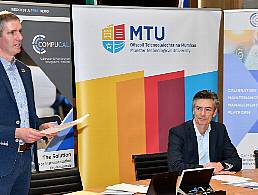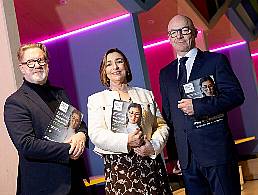The summer holidays and club/camp schedules may be over, but there are still plenty of opportunities for children and young people to engage with STEM.
As technology continues to shift and alter the global digital landscape, today’s kids will be the architects of the future. For that reason, it is important to engage with STEM topics even at a young age.
Giving children and young people a foundational knowledge of STEM early on can be crucial to their development and future prospects, as they learn how to use science, technology, engineering and mathematics to tackle real-world problems.
Not every school will offer its students a curriculum heavy in these topics, but there are still ways for people to engage. SiliconRepublic.com has created a list of after-school STEM clubs, where kids, ranging from national school age to secondary level, can learn and have a little fun.
Steam Academy
With an Irish premises in Dublin and a global presence in wider Europe and the US, Steam Academy aims to give kids the skills they will need to future-proof their careers in the technologically advanced 21st century.
In more than 400 partnered schools across the globe, Steam Academy’s expert mentors teach a weekly interactive class after school hours, covering a broad range of technological issues.
Class length, prices and topics vary depending on the age of the student; for example, for children in junior and senior infants there is programme that focuses on teamwork and fine motor skills, learned through robotics. Classes start at €22.50 a week, lasting for 60 minutes.
For students in fifth and sixth class, prices start at €139 monthly, taking place after school and on the weekends, for 90 minutes or up to four hours. Children in this category will engage with the RoboLeague, where students will participate in weekly practice, learning key engineering and programming skills.
There will also be a monthly competition where children from different schools will compete to solve a unique challenge.
Junior Einsteins Science Club
Founded by Tracey-Jane Cassidy in response to her frustrations over the lack of interactive, educational outlets for children, Junior Einsteins Science Club was established to give kids a fun, high-energy way to learn about science.
According to the club’s website, the platform aims to teach young people “how to think, not what to think”, with hopes that early access to STEM education will encourage students to continue with the subject into third-level education.
Junior Einsteins Science Club has premises all over the world, including in Canada and the UK, with multiple locations around Ireland, such as in Wicklow, Westmeath and Dublin. Targeted at children between the ages of six and 12, the programme runs after-school and on Saturdays – starting at €100 per child – for an hour, once a week.
Children are encouraged to be messy, creative and curious, learning about long chain polymerisation and non-newtonian fluids by experimenting with slime and studying electricity flow by lighting a lightsabre with a plasma ball.
Nutty Scientists
For children and young people aged between three and 16, Wexford-based Nutty Scientists aims to give young people a critical attitude when it comes to STEM, powered by keen observation and experimentation. The platform offers both after-school and in-school workshops, in Wexford, Kerry, Cork and Limerick.
Classes are once a week, covering topics such as chemical reactions, light in action, density of matter, and acid and bases, depending on the age group present.
Trinity Walton Club
Based out of Trinity College Dublin, the Trinity Walton Club offers teenagers attending secondary school the opportunity to further develop their STEM capabilities. Students are encouraged to expand their knowledge by taking on increasingly difficult challenges, growing in confidence and enhancing their STEM knowledge.
Younger students will be enrolled in the Walton Explorers, with older, more experienced kids joining the Walton Innovators. With classes taking place throughout the school year on either a Saturday morning or afternoon, enrolment starts at €315 for a term, or €895 for the year, per child.
Topics will include research abilities, critical thinking, calculus, relativity and 3D printing, among others. Students will tackle design projects and will have the opportunity to demonstrate their newfound skills.
STEM clubs aimed at kids and teenagers are more than just a fun way to make use of your time outside school. It is also a chance to prepare for future educational or career opportunities and grow in skill and confidence. So if you are a young person eager to expand your skillset, or the guardian of one, why not get involved now?
Don’t miss out on the knowledge you need to succeed. Sign up for the Daily Brief, Silicon Republic’s digest of need-to-know sci-tech news.




